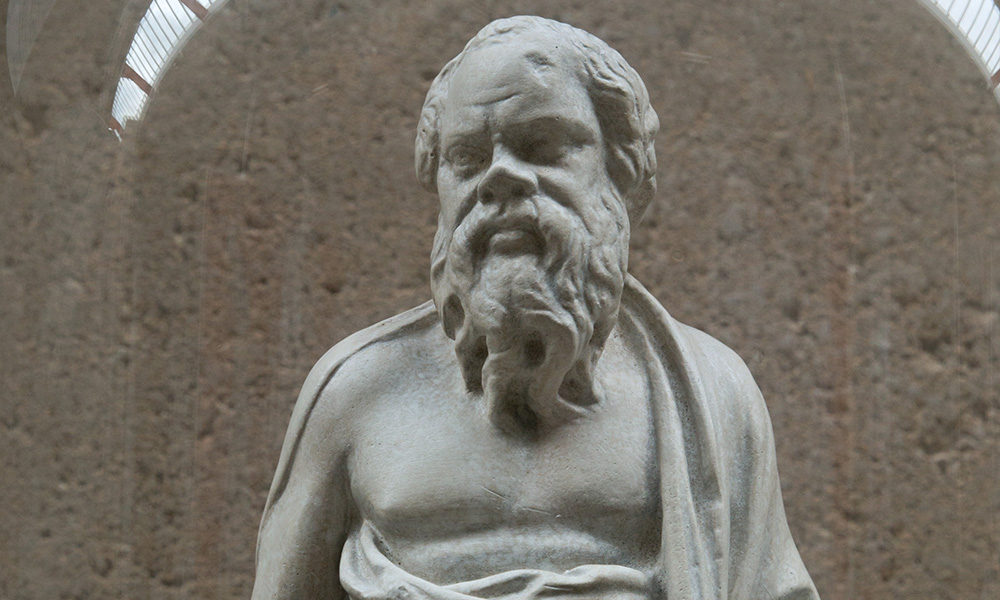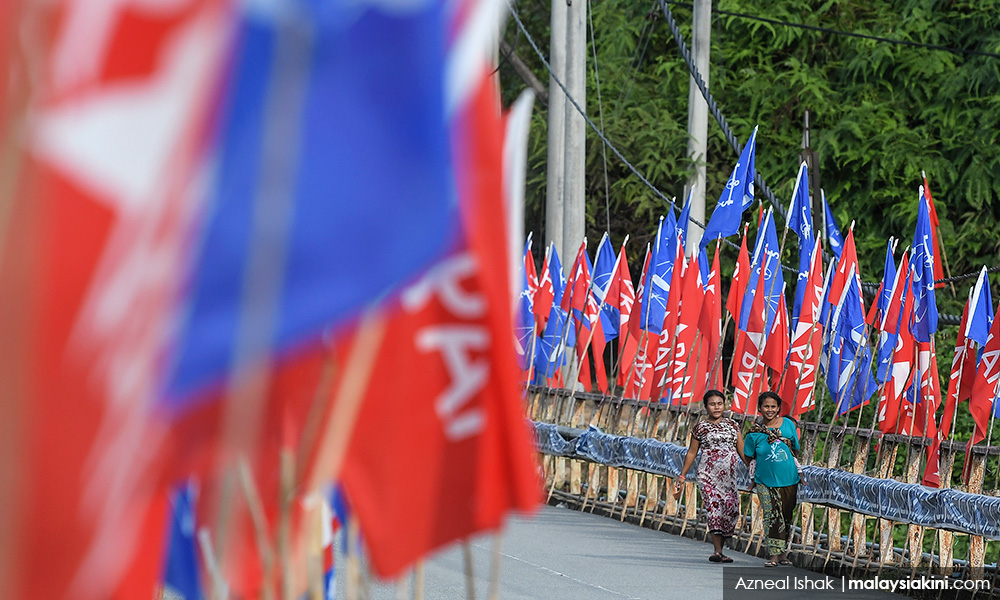Reading the moment before Socrates’s self-execution in ‘The Dialogues of Plato’, I came across this insight recorded in the ‘Phaedo’: “You may be sure, dear Crito… that inaccurate language is not only in itself a mistake: it implants evil in men’s souls.”
Those words were said to Crito, one of Socrates’s followers, before Socrates drank a potion of hemlock - his death sentence for disavowing the many gods of ancient Greece, for teaching the youths of Athens to challenge traditions, to speak truth to power.
Hence, one of his more well-known quotes: “An unexamined life is not worth living.”
Socratic thinking, viewed as subverting the state in 399 BC, reminds me of our politicians today who would resort to any means to attain, regain or remain in power.
Yes, words cut like a knife. When unthinkingly wielded, “inaccurate language” carries serious implications. For example, Umno president Ahmad Zahid Hamidi’s speech at a MIC assembly. Indeed, evil words will manifest in evil deeds.

Socrates’ philosophy of a worthy life should heighten our concern with voters handing power to those whose callous words and deviant deeds reflect their unexamined political life.
The crooks, the connivers, the Bossku and his ilk - they are all unworthy of our votes.
Another Socratic thought that signals who we should vote for is this: “Strong minds discuss ideas, average minds discuss events, weak minds discuss people.”
Which candidates have centred their campaigns on proposing transformative policies and inclusive socio-economic programmes? Which party has come up with a clear manifesto that speaks to the “people’s agenda” and not to racial groups?
None. From what I have read, media coverage of the GE15 electioneering is saturated with photo-ops, events and leadership contests. Utterly deficient are expository debates on policies, programmes and plausible solutions to issues that affect the daily lives of voters.
Little do we know of the candidates’ skillsets on how to stem systemic corruption and cronyism. Few contenders have demonstrated any working knowledge of policies and governance, social economics, public administration, or strategies to address future pandemics and floods.
Educating voters
Even as digital technology has freed up the space for strident political debates, media coverage has been dismal. Here, Socrates’s final words are, again, relevant: “I cannot teach anybody anything. I can only make them think”.
Not making readers think – and think critically - has been one of the weakest traits of our media monitoring of a faltering democracy. Journalists do play a role in educating voters. And, even more so amid the deluge of misinformation and party propaganda on social media.

What we have been fed is what the political candidates have said and claimed at ad hoc press conferences. Stories behind what was not said are left unexamined, the dubious claims unchecked, and past commitments unchallenged.
What are the main contenders’ track records? What can be said of the incumbents’ past statements and present programmes that transcend race and religion? How are the campaigns funded? What is new in the respective party’s platform that we don’t already know?
As a friend muses, with about 22.3 million Malaysians above 18 years old, how is it that there are no capable candidates running for office?
The right questions asked of the candidates should be questions that represent the people’s concerns – from the state of the economy to the declining standards of education, from the rising costs of living to the inefficient public service, from poor public transportation and chronic traffic jams to sustainable urban planning, from professional policing to the rule of law.
Election campaigns are usually skewed towards undermining the opponents’ integrity, parlaying party loyalty at the expense of economic growth and appealing to racial divisions at the expense of social cohesion.

Malaysian elections are no exception. Only in our case, race and religion, kinship ties and patronage outweigh the hip pocket issues that affect the daily lives of ordinary people.
Go deeper
Our media coverage continues to make the same mistake – covering campaign ceramah like calling a horse race. There is scant background check on who are the horse trainers, what is the horse breed, its pedigree, or rather, a yearling?
Journalists can certainly do better in exposing to voters the track record of candidates and their party’s past and present position on specific issues. This means checking the reliability, validity and relevance of the candidates’ statements with voters’ concerns and what the country is facing right now.
Given the usual negative campaigning, journalists need to source for third-party comments by informed analysts from policy research institutes, universities, civil society groups and think tanks. And let’s not forget the impressions of ordinary voters on the streets.
It will be an opportunity lost for a people-centred media if journalists don’t confront and set the public agenda.
If journalists continue to be simply led by what political contenders claim and counterclaim, we will not be reading much of the candidates’ virtue, their values and working knowledge of how to govern.
Journalists should focus on what matters - the people’s welfare - and actively lead by popping the right questions. Election coverage is more than reporting who said what. Today’s reporting needs interpretation, intellectual rigour and tenacity.
In a nutshell, report to help voters think, to help them vote wisely. That’s the way to rid Parliament of crooks and cretins, party-hoppers, backstabbers and under-performers who think they are doing great. - Mkini
ERIC LOO is a former journalist and educator in Australia, and a journalism trainer in parts of Asia.
The views expressed here are those of the author/contributor and do not necessarily represent the views of MMKtT.




No comments:
Post a Comment
Note: Only a member of this blog may post a comment.